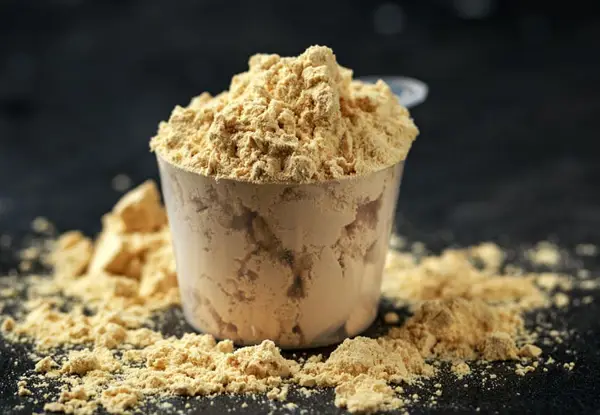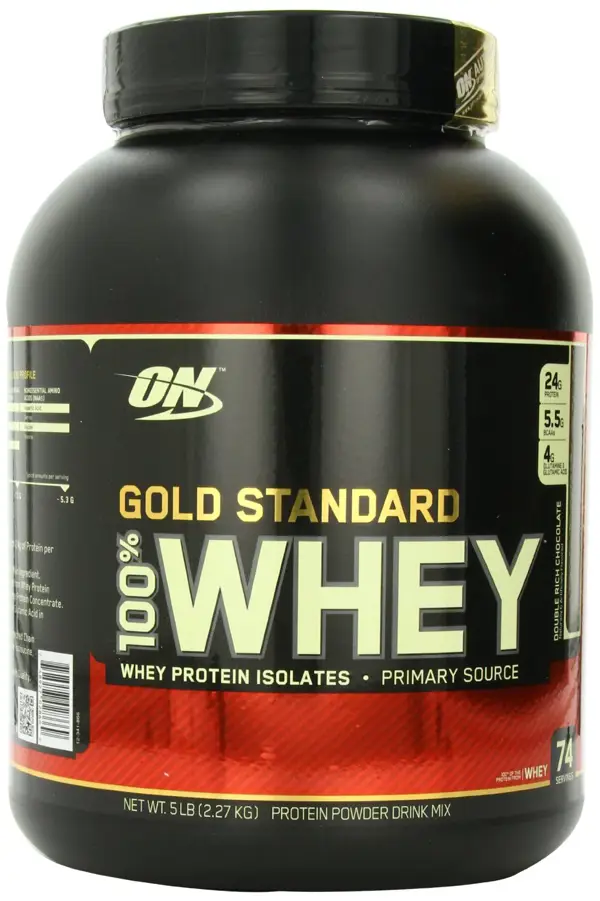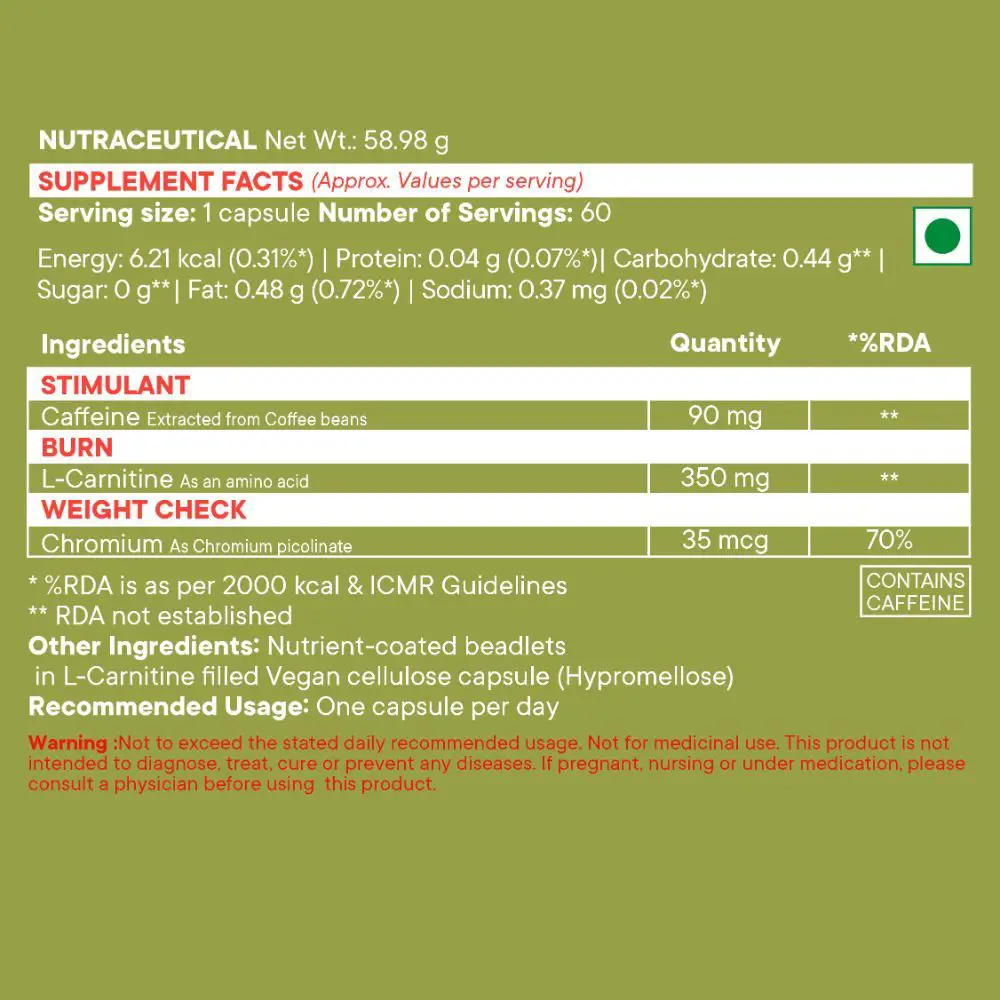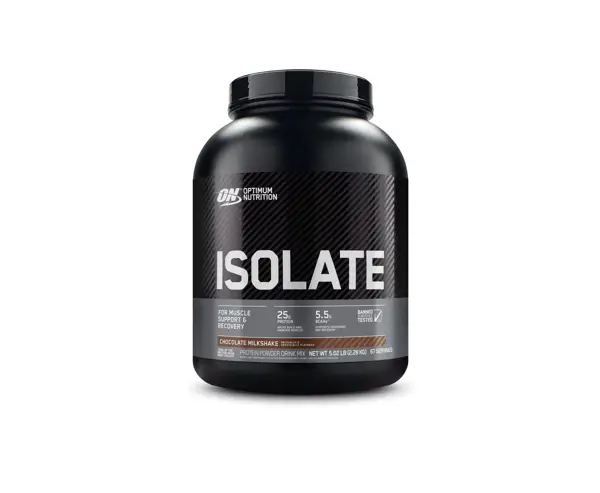Table of Contents:
- What is Whey Protein Isolate?
- Benefits of Whey Protein Isolate
- Potential Risks of Whey Protein Isolate
- Recommended Dosage
- Best Practices for Consumption
- Alternatives to Whey Protein Isolate
- Final Thoughts
What is Whey Protein Isolate?
Whey protein isolate is a type of protein supplement that is derived from milk during the cheese-making process. It is considered a complete protein, containing all essential amino acids that the body needs.
Benefits of Whey Protein Isolate
Whey protein isolate is easily digestible and quickly absorbed by the body, making it an excellent source of protein for muscle recovery and growth. It also contains high levels of branched-chain amino acids, which can help improve exercise performance and promote muscle synthesis.
Whey protein isolate is a high-quality protein supplement that can provide numerous benefits for overall health and fitness. Here are some of the key advantages of incorporating whey protein isolate into your diet:
- Muscle Building: Whey protein isolate is rich in essential amino acids, which are the building blocks of muscle tissue. Consuming whey protein isolate can help support muscle growth and repair, making it an ideal supplement for athletes and those looking to build muscle.
- Weight Management: Whey protein isolate is low in carbohydrates and fats, making it a lean and effective source of protein for those looking to manage their weight. Protein has been shown to help increase feelings of fullness and boost metabolism, which can aid in weight loss and maintenance.
- Immune Support: Whey protein isolate contains immunoglobulins and lactoferrin, which can help support the immune system and promote overall health. Regular consumption of whey protein isolate may help reduce the risk of illness and infection.
- Recovery and Repair: Whey protein isolate is quickly absorbed by the body, making it an ideal post-workout supplement. Consuming whey protein isolate after exercise can help replenish glycogen stores, reduce muscle soreness, and promote faster recovery and repair of muscle tissue.
In conclusion, whey protein isolate is a versatile and beneficial supplement that can support muscle building, weight management, immune function, and recovery. Incorporating whey protein isolate into your diet can help you achieve your fitness and health goals.
Are whey protein isolate bad for you?
Overall, whey protein isolate is generally safe for most people to consume in moderation. However, some individuals may be sensitive to lactose or have allergies to dairy products, in which case whey protein isolate may not be suitable. It's always best to consult with a healthcare provider or nutritionist before starting any new supplement regimen to ensure it is safe and appropriate for your individual needs.

Potential Risks of Whey Protein Isolate
While whey protein isolate is generally considered safe for most people, some individuals may experience digestive issues such as bloating, gas, or diarrhea. It is important to consult with a healthcare professional before starting any new supplement regimen.
While whey protein isolate can be beneficial for many people, it is important to be aware of potential risks associated with its consumption:
- 1. Allergic reactions: Some individuals may be allergic to whey protein isolate, which can cause symptoms such as hives, itching, and swelling.
- 2. Digestive issues: Consuming too much whey protein isolate can lead to digestive problems such as bloating, gas, and diarrhea.
- 3. Kidney damage: In some cases, consuming excessive amounts of protein, including whey protein isolate, can put strain on the kidneys and potentially lead to kidney damage.
- 4. Heavy metal contamination: Whey protein isolate supplements may contain trace amounts of heavy metals, which can be harmful to health if consumed in high doses over time.
It is important to consult with a healthcare provider before starting any new supplement regimen, including whey protein isolate, to ensure it is safe for your individual health needs.

Recommended Dosage
The recommended daily dosage of whey protein isolate varies depending on individual goals and activity levels. It is important to follow the instructions provided on the supplement packaging and not exceed the recommended dosage.
When it comes to consuming whey protein isolate, it is important to follow the recommended dosage for optimal results and to avoid any potential negative effects on your health.
The recommended dosage of whey protein isolate can vary depending on factors such as your weight, level of physical activity, and fitness goals. In general, it is advised to consume around 20-30 grams of whey protein isolate per serving.
It is important not to exceed the recommended dosage as consuming too much whey protein isolate can put strain on your kidneys and liver. Always consult with a healthcare professional or a nutritionist before starting any new supplement regimen.
Remember, moderation is key when it comes to incorporating whey protein isolate into your diet. Be sure to read the instructions on the product packaging and listen to your body's signals to determine the right dosage for you.

Best Practices for Consumption
To maximize the benefits of whey protein isolate, it is recommended to consume it post-workout or as a meal replacement. It can be mixed with water, milk, or blended into smoothies for added flavor and nutrition.
When it comes to consuming whey protein isolate, there are some best practices that you should follow to ensure that you are getting the most benefit from this popular supplement.
1. Consult with a Healthcare Professional
Before starting any new supplement regimen, it is important to consult with a healthcare professional to ensure that whey protein isolate is safe for you to consume.
2. Follow Recommended Dosage Guidelines
It is important to follow the recommended dosage guidelines provided by the manufacturer of the whey protein isolate product. Consuming too much protein can put strain on your kidneys and may cause digestive issues.
3. Timing is Key
For optimal results, it is recommended to consume whey protein isolate within 30 minutes of completing a workout. This helps to replenish protein stores and aid in muscle recovery and growth.
4. Stay Hydrated
Drinking plenty of water is important when consuming whey protein isolate to help with digestion and absorption of the protein. Aim to drink at least 8 glasses of water per day.
5. Choose a High-Quality Product
When selecting a whey protein isolate product, be sure to choose one that is high-quality and free from unnecessary additives or fillers. Look for products that are third-party tested for purity and potency.
By following these best practices, you can ensure that you are safely and effectively incorporating whey protein isolate into your diet.

Alternatives to Whey Protein Isolate
If whey protein isolate does not agree with your digestive system or dietary preferences, there are alternative protein supplements available such as plant-based proteins, egg white protein, or collagen protein.
If you are looking for alternatives to whey protein isolate or are concerned about the potential negative effects of consuming whey protein isolate, there are several options to consider. Some alternatives to whey protein isolate include:
1. Plant-based protein powders such as pea protein, hemp protein, and brown rice protein. These options are vegan-friendly and may be easier for some individuals to digest.
2. Collagen protein, which can support joint health and promote healthy skin, hair, and nails.
3. Egg white protein powder, which is a complete protein source and may be easier on the digestive system than whey protein isolate for some individuals.
It is important to note that whey protein isolate is generally safe for most people to consume in moderation, but some individuals may experience digestive issues or allergies to dairy. If you have concerns about whey protein isolate or are looking for alternatives, speak with a healthcare provider or registered dietitian to determine the best option for your individual needs.

Final Thoughts
Before incorporating whey protein isolate into your diet, it is important to consider your individual health needs and goals. Consulting with a healthcare professional or registered dietitian can help determine if whey protein isolate is a suitable supplement for you.
When it comes to whey protein isolate, there are mixed opinions on whether or not it is bad for you. Some studies suggest that consuming whey protein isolate can have benefits such as promoting muscle growth and aiding in weight loss. However, there are also concerns about the potential side effects of consuming too much protein, such as digestive issues and kidney problems.
Ultimately, the key to incorporating whey protein isolate into your diet is moderation. It is important to consult with a healthcare professional or nutritionist to determine the right amount of protein for your individual needs. Additionally, it is essential to choose a high-quality whey protein isolate product from a reputable source to ensure its effectiveness and safety.
Overall, whey protein isolate can be a beneficial addition to your diet when consumed in moderation and as part of a balanced nutrition plan.

Key Takeaways:
- Whey protein isolate is a complete protein source derived from milk.
- It is easily digestible and quickly absorbed by the body.
- Some individuals may experience digestive issues with whey protein isolate.
- Follow recommended dosage and consumption practices for best results.
- Consider alternatives if whey protein isolate is not suitable for you.
Frequently Asked Questions:
Is whey protein isolate safe for long-term use?
While whey protein isolate is generally safe for most people, it is important to monitor any potential side effects and consult with a healthcare professional if you have any concerns about long-term use.
Can whey protein isolate help with weight loss?
Whey protein isolate can be a helpful supplement for weight loss when combined with a healthy diet and regular exercise. It can help increase feelings of fullness and promote muscle mass retention during weight loss.



Recent Comments